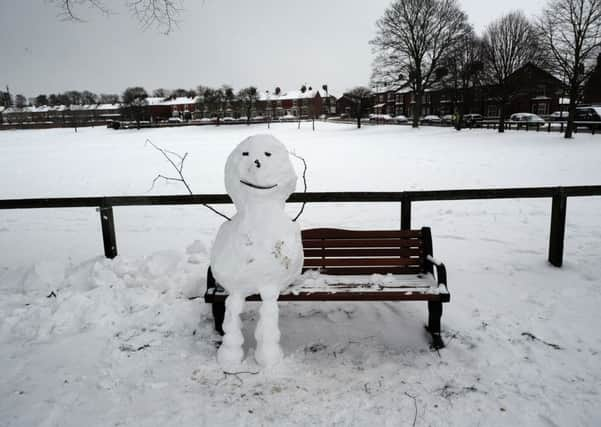What are people asking Google about the snow?


Here are the answers to some of the most popular questions people have asked over the past seven days.
What is snow? And at what temperature does it snow?
Snow is water vapour that freezes in the atmosphere into ice crystals and falls to the ground as white flakes, according to the Met Office.
Advertisement
Hide AdAdvertisement
Hide AdIt forms when the atmospheric temperature is at or below 0C (32F), but will only fall to the ground as snow when the air temperature at that height is below 2C (35.6F).
Just above 2C, the snowflake will melt and fall as sleet or as rain if it is warmer still.
The Met Office says it is a myth that snow only falls below 0C, and the heaviest snowfalls in the UK tend to occur between 0 and 2C.
Will it snow?
While the heaviest of the snow is likely to have passed, with fewer weather warnings on Friday, there may be still to come in some areas.
Advertisement
Hide AdAdvertisement
Hide Ad“Will it snow”, “where is it snowing now” and “how much snow will we get” were three of the top four searches in the past week.
Is it illegal to drive with snow on your car?
While there is no law saying it is illegal to drive with snow on your car, the Highway Code says people must by law be able to see out of every glass panel in their vehicle when driving in adverse weather conditions.
The Road Traffic Act 1988 adds that it is a legal requirement for motorists to have a clear view of the road before starting to drive. Failure to do so can incur a fine.
How to drive in snow? And what gear should be used?
Snow causes difficult driving conditions, so plan ahead and allow yourself more time if you need to use your vehicle.
Advertisement
Hide AdAdvertisement
Hide AdThe RAC recommends checking your car before you set off for parts which could be affected by the cold, such as frozen windscreen wipers, and finding a route which is less likely to be exposed to the elements.
Drive slowly and smoothly, ensuring you leave plenty of space between you and the car in front of you, and avoid braking suddenly if possible to decrease the risk of skidding.
If you have a manual vehicle, the RAC recommends using low revs and changing up to a higher gear quickly, even using second gear to set off and reduce wheel slip when possible.
Low gears should be used for going downhill and braking should be avoided unless necessary. When going uphill, try to maintain a constant speed and gear.
Advertisement
Hide AdAdvertisement
Hide AdIf it is snowing while you are driving, make sure to turn your dipped headlights on so that you are visible from in front and behind to other drivers. Fog lights should be used when visibility drops below 100m.
For further information on driving in the snow, go to the RAC’s website.
What roads are closed due to snow?
Road closures change rapidly, but people can keep up to date by checking Traffic England, Wales and Scotland websites, or Highways England.
Local news and radio outlets also offer regular updates.
What are snow drifts and squalls?
A snow drift refers to a bank of snow which has been heaped up by wind.
Advertisement
Hide AdAdvertisement
Hide AdA snow-squall is a sudden and moderately heavy snowfall combined with strong winds.
Will flights be cancelled due to snow?
Airport arrivals and departures boards can be accessed online and offer real time updates on flights, and is the best way to stay up to date.
If you have a flight, your airline should contact you if it is delayed or cancelled - and should try to book you an alternative journey for the latter.
How do you walk in snow?
The NHS recommends walking like a penguin.
Take short steps with feet facing slightly outwards, knees loose and arms extended to the side for balance.
Why do schools close for snow?
Advertisement
Hide AdAdvertisement
Hide AdDepartment for Education guidelines state headteachers must use common sense to assess the safety risks posed by snow and then make an executive decision.
Headteachers must consider whether children can travel to school safely, if there are enough staff available to supervise them and that the site itself is safe.
This decision can be made due to snow that has already fallen, but also weather reports suggesting conditions will further worsen.
How to make an igloo out of snow?
Other questions in the top 30 of Google’s most searched questions about snow from the past week include “what to do on a snow day” and “how to make an igloo out of snow”.
Other non-question top searches included “snow shovel” and “snow plough”, “snow jokes”, “snow puns” and “snow quotes” and “snow socks”.